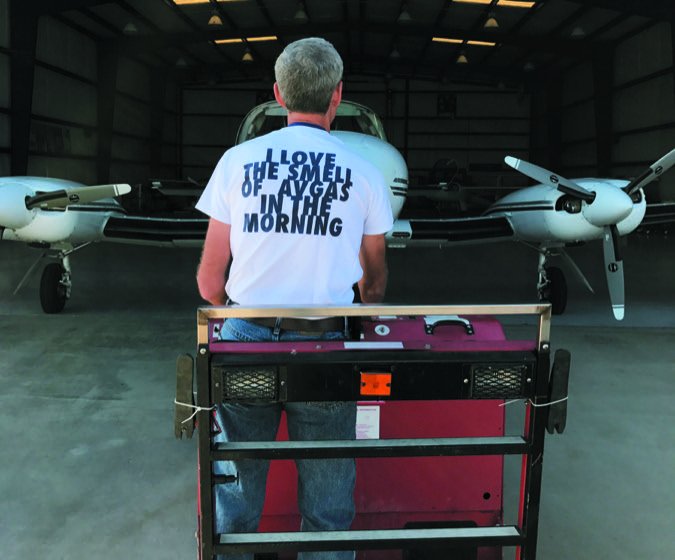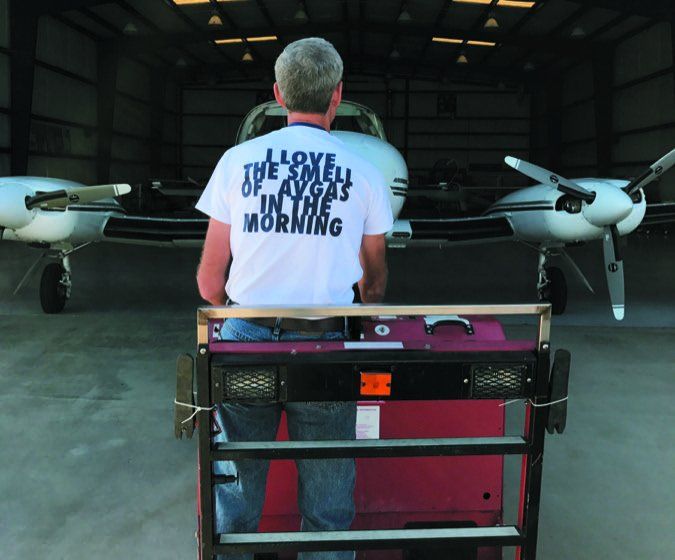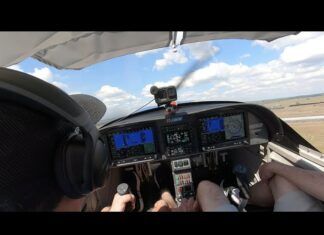Call them ramp fees, facility charges or handling fees. When you pull up to many FBOs there’s a good chance you’ll be billed a flat-rate charge just for taking space on the ramp. In general, the larger the aircraft, the more you’ll pay. Most facilities that collect facility fees will waive them if you oblige by buying a specific amount of fuel, which of course always works out to be more than the fee. No matter what, my mentality is that I never expect anything for free and that’s especially true when aviating. If I’m using the FBO’s Wi-Fi, drinking its coffee, refreshing my breath with its mouthwash and using its line staff to reposition the airplane so I can get good photos, I have no problem paying a reasonable charge. Like at hotels, I’ve been gouged and treated fairly by the best and the worst. Some FBOs just get it and they’re worth mentioning.

When we flew the Cirrus Vision Jet last fall, we set up shop for a couple of hours on the ramp at Pentastar Aviation in Pontiac, Michigan (PTK), for some filming. Wandering inside to find a snack machine, I was thrilled to find no shortage of quality munchie food on the counters for the taking. There was a lot of it—like stuff your cargos with as much as you can fit. Even better, the restrooms were clean and overly lux. Noticing my cookie-eating grin, my colleague Paul Bertorelli had to remind me that we were on the better side of the tracks, where fresh lemonade, pastries and granite urinals come at a price.
Pentastar says for it to “provide maximum value” (which means stocking its counters for guys like me who mooch its food), it charges a $30 handling fee for single-engine airplanes, which is waived if you buy 25 gallons of $4.95 per gallon full-service 100LL. Light jets are billed $150 unless they take on 100 gallons of Jet-A. Given the above-average level of service and quality of its facility, plus fuel prices that fall we’ll within the average for the region, it’s tough to complain about Pentastar’s handling fees, which would be bolder yet when you climb out of a $1.5 million ride. But there’s a larger issue brewing and it’s totally valid: What if you don’t want ramp services, free food or even tiedown ropes? Should you have to pay flat-rate handling fees to an FBO on a public, federally funded airport when all you want to do is park and get to the other side of the fence? I think there need to be better options and I’m not alone.
According to both AOPA and the FAA, they’ve heard from an increasing number of pilots who are being charged for FBO services they don’t ask for or receive. There have also been complaints of price gouging at certain airports with no competing FBOs, which has prompted AOPA’s initiative attempting to ensure reasonable and transparent pricing at FBOs on public airports. Even the FAA has stepped in, publishing its own Q&A guidance for pilots, FBOs and airport sponsors that addresses how federally funded airports should facilitate competition and transparency, while promoting reasonable pricing and access. The link to the December 2017 six-page document is at tinyurl.com/ycxq2kwr. Like most FAA guidance, be prepared to read through it a few times.
Some FBO managers I talked with are losing their minds over the mere existence of an FAA document on the matter that, according to the agency, “is not an attempt to impose new regulations or policies on airports.” But in the document, the FAA essentially says it can review FBO/airport sponsor (that’s the tenant/landlord) leases and follow up on complaints of price gouging, while reinforcing that it has a statutory mandate to ensure that airport sponsors comply with federal obligations. To me, that’s a setup for more FAA intervention. Stay tuned.
To get a sense of how widespread the problem of FBO price gouging is, we’ll launch an FBO satisfaction survey and report on it in a future issue of Aviation Consumer. In the meantime, drop us a line and describe your best and worst FBO experiences. We’ll include them in the reporting.


